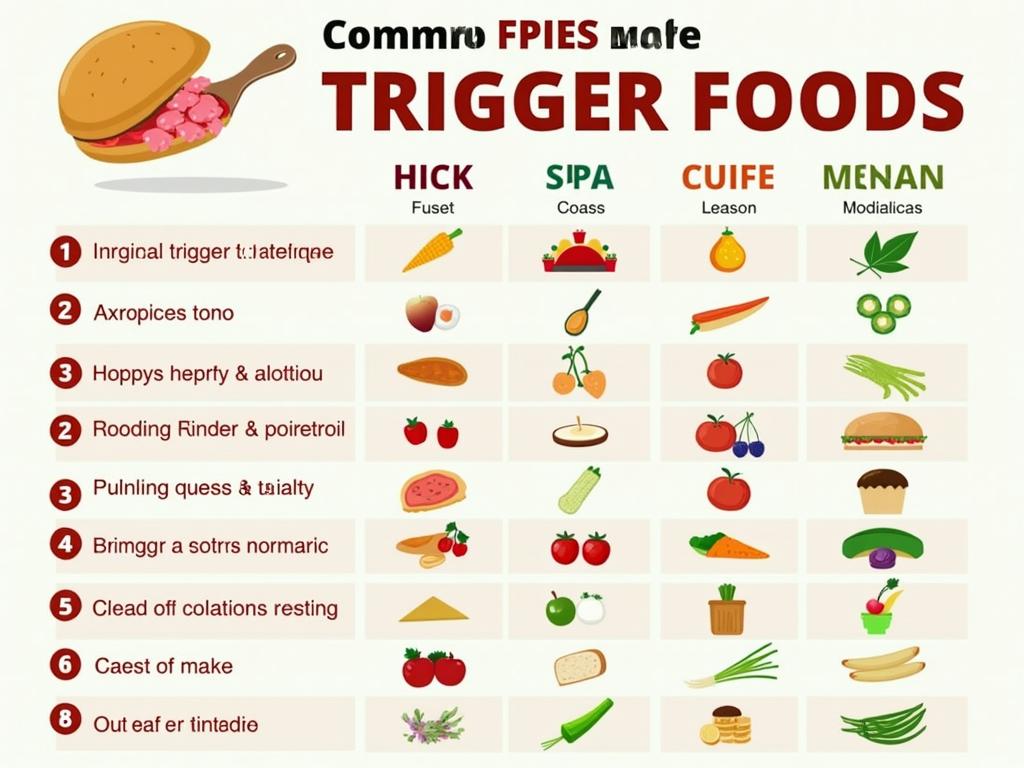Food Protein-Induced Enterocolitis Syndrome (FPIES) is a serious food allergy that primarily affects the gastrointestinal system, mainly in infants and young children. While most food allergies present immediate reactions, chronic FPIES is rooted in ongoing exposure to particular food proteins, leading to persistent and challenging symptoms. In this article, we will delve into the symptoms of chronic FPIES, its possible long-term impacts, and effective management strategies.

Symptoms of Chronic FPIES
Chronic FPIES symptoms can vary but often include: - Chronic Diarrhea: Frequent, watery stools may be a significant sign. - Vomiting: This can occur intermittently or during feeding. - Failure to Thrive: Many children with chronic FPIES do not gain weight as expected. - Abdominal Pain: This is often accompanied by discomfort and irritability. - Poor Appetite: Children might show reluctance to eat due to discomfort after meals.
These symptoms can be mistaken for other gastrointestinal issues, making diagnosis a challenging task for parents and healthcare professionals.
Personal Story
Meet Emma, a lively two-year-old who suddenly began experiencing frequent vomiting and diarrhea after her parents introduced solid foods. Despite trying different foods and formulas, her symptoms persisted, leaving her parents confused and concerned. After numerous visits to the pediatrician, they learned Emma had chronic FPIES. By working closely with a specialist, they began identifying trigger foods and managing her diet effectively.

Long-Term Effects of Chronic FPIES
If left unmanaged, chronic FPIES can lead to several long-term effects: - Malnutrition: Continuous gastrointestinal symptoms can result in inadequate nutrient absorption. - Growth Delays: Children may fall behind on growth charts due to insufficient caloric intake. - Psychosocial Impact: The stress of managing a chronic condition can lead to anxiety and food-related phobias.
On a positive note, many children can outgrow FPIES by ages 3 to 5. However, some may continue to experience sensitivities or even develop new allergies.
Management Tips for Chronic FPIES
Managing chronic FPIES requires a collaborative approach between parents and healthcare professionals. Consider these tips:
1. Identify Trigger Foods: Work with an allergist to pinpoint problematic foods through elimination diets or food challenges.
2. Maintain a Food Diary: Track everything your child eats along with symptom occurrences. This can help identify patterns.
3. Utilize Allergy Alternatives: Finding safe substitutes for trigger foods can prevent symptoms and ensure good nutrition.
| Trigger Food | Alternative Options |
|---|---|
| Cow's Milk | Hypoallergenic Formula |
| Soy | Rice Milk |
| Rice | Quinoa |
- Seek Guidance: Regular check-ins with a nutritionist can help develop balanced meals while avoiding allergens.

Summary
Chronic FPIES is a complex condition that can pose significant challenges for affected children and their families. Understanding the symptoms and long-term effects allows caregivers to take proactive steps in managing this condition. With careful dietary planning and support from healthcare professionals, many children can navigate FPIES effectively and lead healthy lives.
Read More
- Acute FPIES: What You Need to Know
- Food Allergies in Children: Identifying Triggers
- Managing Chronic Conditions in Kids
- Understanding Food Protein-Induced Enterocolitis Syndrome
- Healthy Eating Habits for Sensitive Kids
Discuss Here